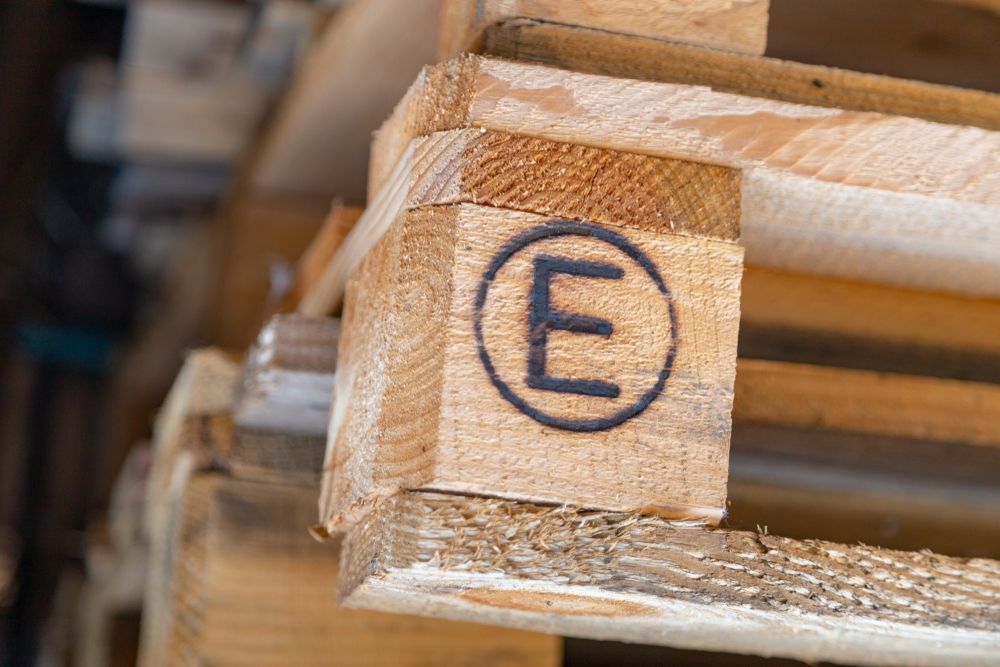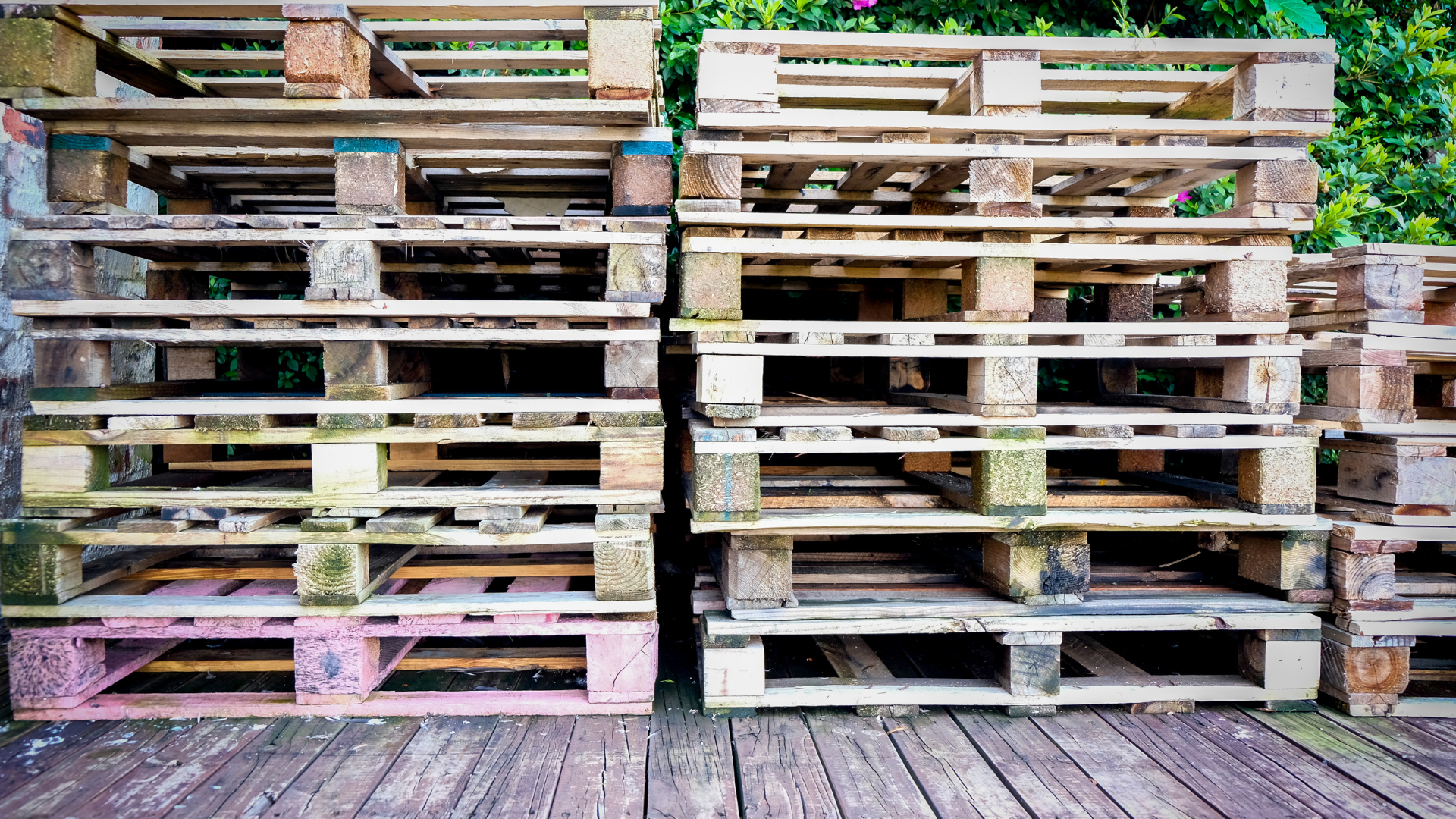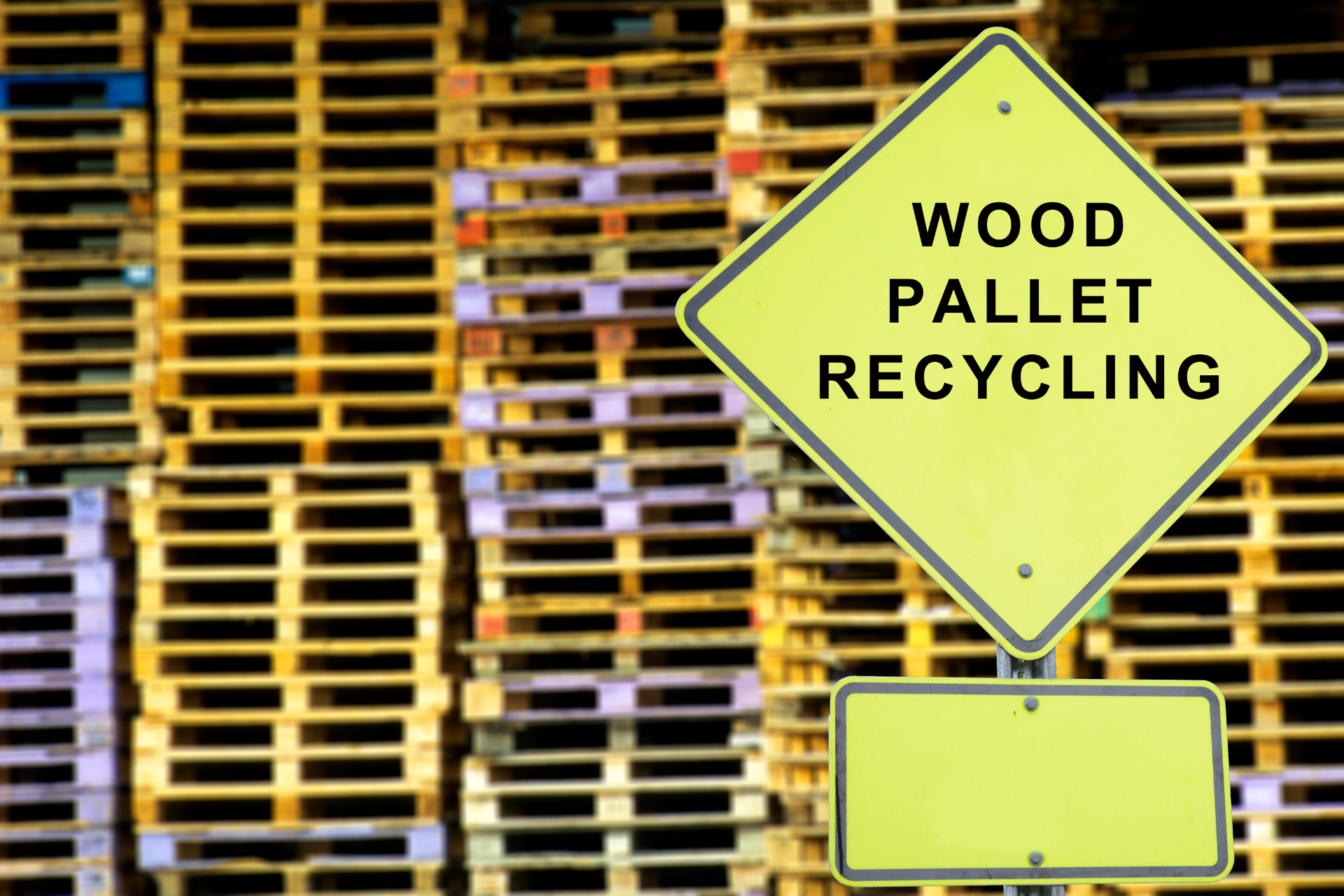Heat-treated pallets have become a cornerstone in the shipping and logistics industries, marking a significant advancement in how goods are transported globally. These pallets, treated with heat to eliminate pests and pathogens, are a vital tool in maintaining the integrity and safety of transported products. This treatment process involves heating the wood to a specific temperature, ensuring it is free from harmful organisms that could otherwise pose a risk to different ecosystems and the quality of the cargo. The use of heat-treated pallets is not just a preference but a regulatory requirement in many international shipping scenarios, underscoring their importance in global trade. This process aligns with the International Standards For Phytosanitary Measures No. 15 (ISPM 15), making these pallets essential for businesses looking to export products abroad. The adoption of heat-treated pallets reflects a commitment to environmental responsibility and global trade safety, making them an indispensable asset in various industries.
Section 1: Understanding Heat Treated Pallets
Heat-treated pallets are a specific type of wooden pallet that undergo a specialized treatment process to enhance their durability and safety for global shipping. This process involves exposing the pallets to a high temperature, typically around 56°C (132.8°F) for a minimum of 30 minutes. This heat treatment effectively eradicates any pests, larvae, or pathogens that might be present in the wood, ensuring the pallets meet international phytosanitary standards for safe shipping.
The primary distinction between heat-treated and non-heat-treated pallets lies in this sterilization process. Non-heat-treated pallets haven't undergone this rigorous procedure, making them potentially unsafe for international shipping due to the risk of carrying pests or diseases across borders. In contrast, heat-treated pallets are marked with a specific stamp indicating their compliance with international standards, particularly ISPM 15, a regulation developed to prevent the spread of diseases and insects that could harm plants and ecosystems.
The types of wood used for heat-treated pallets vary but typically include softwoods like pine and hardwoods like oak. Softwoods are often preferred for their availability and cost-effectiveness, while hardwoods are chosen for their durability. Regardless of the wood type, the heat treatment process is essential to render these pallets safe for international trade. By ensuring these standards are met, heat-treated pallets play a crucial role in safeguarding agricultural and ecological health across the globe, making them a preferred choice for environmentally conscious and regulation-compliant shipping practices.
The Importance of Heat Treatment for Pallets
The heat treatment of pallets is an essential process, primarily for two reasons: pest control and compliance with international shipping standards. This treatment is crucial in preventing the spread of invasive species and plant diseases across borders, which can be detrimental to local ecosystems and agriculture. Pests like bark beetles and termites, along with various fungal diseases, can easily hitch a ride on untreated wooden pallets, posing a significant biosecurity risk when these pallets are shipped globally.
International shipping compliance, particularly adherence to the International Standards For Phytosanitary Measures No. 15 (ISPM 15), is another critical reason for heat treating pallets. ISPM 15 is a regulation set by the International Plant Protection Convention (IPPC) to control the international transport of potentially contaminated wooden materials. This standard mandates that all solid wood packaging materials, including pallets, must be either heat treated or fumigated with methyl bromide and marked with a specific seal of compliance. This seal serves as a global passport for pallets, ensuring that they are free from harmful pests and diseases and are safe for international transit.
By adhering to these standards, heat-treated pallets not only facilitate smooth international trade but also protect global forest health and biodiversity. Businesses involved in international shipping must use these treated pallets to avoid the risk of shipment rejection or penalties due to non-compliance with ISPM 15. Thus, the heat treatment of pallets is not just a logistical or regulatory requirement; it's a critical step in promoting and maintaining ecological balance and global trade health.

The Heat Treatment Process
The heat treatment process for wooden pallets is a meticulous and controlled procedure, designed to ensure the eradication of any pests and pathogens. The process typically involves several key steps, utilizing specific technology and equipment to achieve the required standards.
- Preparation: Before heat treatment, the pallets are constructed using raw wood. These pallets are then stacked in a manner that allows for even heat distribution during the treatment process.
- Loading into the Kiln: The prepared pallets are loaded into a large kiln. A kiln is a specially designed heated chamber used for treating the wood. The size and design of these kilns can vary, but they are all built to maintain a consistent and controlled temperature.
- Heating: Once the pallets are in the kiln, the temperature is gradually increased to the required level, typically around 56°C (132.8°F). This temperature must be maintained uniformly throughout the kiln and must penetrate the wood to a minimum depth of 1.2 cm (0.47 inches).
- Duration of Treatment: The pallets are kept at this temperature for a minimum of 30 minutes. This duration is crucial to ensure that any pests, larvae, or fungi within the wood are completely eradicated.
- Cooling and Removal: After the heat treatment, the pallets are allowed to cool within the kiln before removal. This step is essential to prevent any moisture-related issues or warping of the wood.
- Certification and Marking: Post-treatment, the pallets are inspected and then stamped with a mark indicating compliance with ISPM 15 standards. This mark is an internationally recognized certification, showing that the pallets have been properly treated.
The technology used in this process primarily revolves around the kiln. Modern kilns are equipped with sophisticated temperature and humidity controls to ensure consistent treatment. They may also have computerized monitoring systems to record the treatment process,
ensuring compliance with international standards.
These computerized systems enable precise tracking and documentation of the heat treatment process, providing a verifiable record that the pallets have been treated according to the required specifications. Additionally, this advanced technology allows for greater efficiency and control, reducing energy consumption and enhancing the overall effectiveness of the treatment.
The integration of such technology in the kiln design not only bolsters the quality and reliability of the heat-treated pallets but also reflects a commitment to leveraging modern advancements for improved environmental practices and operational excellence. In essence, the use of sophisticated kilns in the heat treatment process represents a convergence of technological innovation and ecological responsibility, ensuring that the pallets meet both the safety and sustainability needs of the modern global market.
Durability and Lifespan
The durability and lifespan of heat-treated pallets are significant considerations for businesses relying on them for transportation and storage. Generally, these pallets have a robust lifespan, owing to the strength imparted by the heat treatment process. Typically, a well-maintained heat-treated pallet can last anywhere from three to five years, depending on factors such as the frequency of use, the weight of the loads they carry, and the conditions in which they are stored.
Comparatively, heat-treated pallets often display enhanced durability over their non-heat-treated counterparts. The heat treatment process not only rids the wood of pests and pathogens but also reduces its moisture content. This reduction in moisture not only makes the wood less hospitable to future infestations but also less prone to warping and fungal growth, common issues in untreated wooden pallets. As a result, heat-treated pallets are less likely to succumb to structural weaknesses over time.
Another aspect contributing to their durability is the type of wood used. Heat-treated pallets made from hardwoods like oak are particularly robust, withstanding heavier loads and more rigorous use. However, even those made from softer woods like pine benefit significantly from the heat treatment process in terms of longevity.
It's also worth noting that heat-treated pallets, despite their ruggedness, are not indestructible. Their lifespan can be considerably shortened by rough handling, overloading, or prolonged exposure to harsh environmental conditions like extreme moisture or direct sunlight. Proper care and maintenance, including storing them in dry conditions and handling them with care, can significantly extend their useful life, making them a cost-effective and reliable choice for businesses.
Recycling and Environmental Impact
Heat-treated pallets not only excel in functionality and compliance but also stand out for their recyclability and positive environmental impact. These pallets, at the end of their lifecycle, can be recycled in various ways, contributing to a sustainable approach in material usage.
The primary aspect of their recyclability lies in the wood itself. Once a heat-treated pallet is no longer usable, the wood can be repurposed for other products. This includes being chipped for mulch, processed into particle board, or even transformed into furniture or other wooden items. Such repurposing not only diverts waste from landfills but also reduces the need for virgin timber, conserving forests and the biodiversity they support.
Additionally, the process of recycling these pallets consumes significantly less energy compared to manufacturing new ones from raw materials. The energy saved translates into reduced carbon emissions, a crucial factor in mitigating climate change. The ability to recycle these pallets multiple times over their lifespan amplifies this benefit, making them a more sustainable choice compared to single-use or less durable alternatives.
The environmental benefits extend beyond the recycling phase. The heat treatment process itself, by eliminating the need for chemical fumigants, presents a more environmentally friendly method of pallet sterilization. This aspect is particularly
important in reducing soil and air pollution, contributing to a healthier ecosystem. By avoiding chemical treatments, heat-treated pallets ensure a safer working environment for those handling them and minimize the potential for chemical runoff into the environment. This eco-friendly approach aligns with the growing global emphasis on sustainable practices, making heat-treated pallets not just a compliance necessity, but also a choice that reflects a commitment to environmental stewardship and responsibility. Consequently, businesses opting for these pallets are not only adhering to international shipping standards but are also actively participating in efforts to protect and preserve our natural environment.
Heat-treated pallets represent a crucial innovation in global trade, ensuring the safe and compliant transportation of goods while safeguarding ecosystems from invasive pests and pathogens. The heat treatment process, aligning with ISPM 15 standards, enhances the durability and longevity of these pallets, making them a reliable choice for businesses. Additionally, the recyclability of heat-treated pallets underscores their role in environmental sustainability, reducing waste and conserving natural resources. Their use not only meets rigorous international shipping requirements but also reflects a commitment to ecological responsibility, making them an indispensable asset in the landscape of global logistics and environmental stewardship.
Expertise in Toronto, Ontario
Consolidated Pallet Co., based in Toronto, Ontario, stands out as a leader in the pallet industry, offering a wide range of pallet solutions to meet the diverse needs of businesses in Canada and beyond. Known for their commitment to quality and sustainability, Consolidated Pallet Co. specializes in providing both new and recycled pallets, including their eco-friendly and internationally compliant heat-treated pallets.
Their expertise in the field is complemented by their dedication to customer service, ensuring each client receives pallet solutions tailored to their specific requirements. As a local company with a global vision, Consolidated Pallet Co. prides itself on its ability to adapt to the evolving needs of the market, continuously investing in the latest technologies and sustainable practices.
This approach has not only solidified their reputation in Toronto's bustling business environment but has also positioned them as a reliable and forward-thinking partner in the logistics and supply chain sectors.
Frequently Asked Questions
-
What are heat-treated pallets?
Heat-treated pallets are wooden pallets subjected to a high-temperature treatment to eliminate pests and pathogens, making them safe for international shipping.
-
Why is heat treatment necessary for pallets?
Heat treatment is essential for eradicating wood-borne pests and diseases, ensuring compliance with international shipping regulations like ISPM 15 to prevent ecological harm.
-
How are pallets heat-treated?
Pallets are placed in a kiln where they are heated to at least 56°C for 30 minutes, ensuring deep penetration and sterilization of the wood.
-
What wood types are best for heat-treated pallets?
Both hardwoods and softwoods are used, with preferences for durable woods like oak or cost-effective options like pine, depending on usage requirements.
-
How do heat-treated pallets comply with ISPM 15?
By undergoing the heat treatment process, these pallets meet ISPM 15 standards for international shipping, preventing the spread of pests and diseases.
-
Can heat-treated pallets be reused or recycled?
Yes, these pallets can be reused multiple times and later recycled into mulch, particle board, or even repurposed into new wooden products.
-
What is the average lifespan of a heat-treated pallet?
Typically, a heat-treated pallet lasts between three to five years, depending on factors like usage frequency and storage conditions.
-
Are heat-treated pallets environmentally friendly?
Yes, they are more environmentally friendly due to their recyclability, reduced need for virgin timber, and avoidance of chemical treatments.
-
How do heat-treated pallets differ from other pallet types?
Unlike non-heat-treated pallets, they are sterilized for international compliance, more durable, and less prone to pest infestation and fungal growth.
-
Where are heat-treated pallets commonly used?
They are extensively used in international shipping, warehousing, and industries that require compliance with global phytosanitary shipping standards.
Working Hours
Monday - Friday : 8 am - 5 pm
Address & Phone Number
Email Address
All Rights Reserved | Consolidated Pallet Co.






